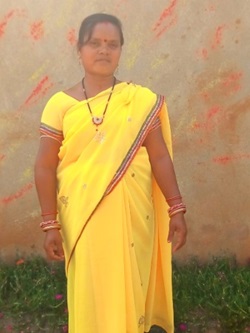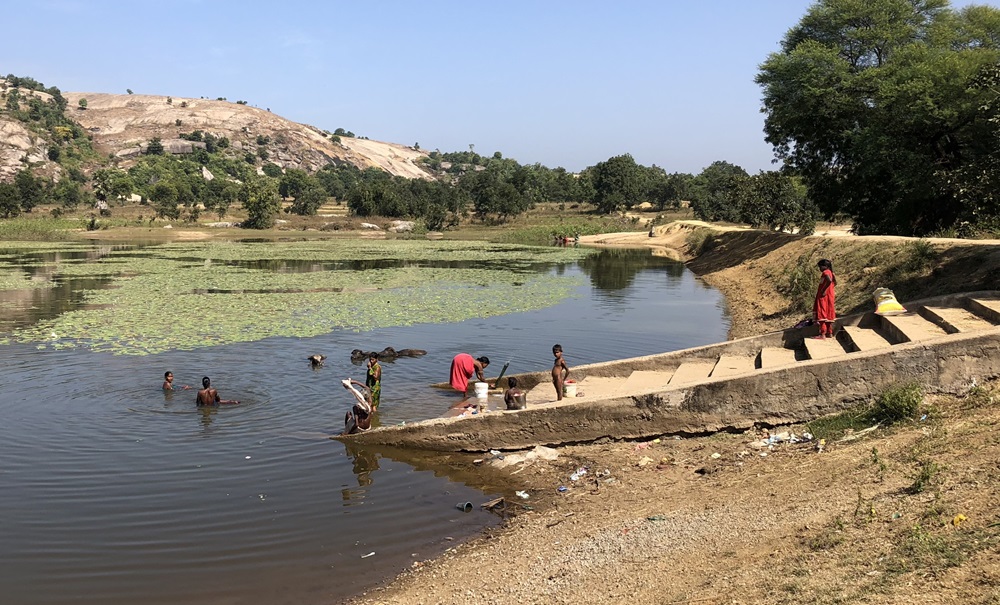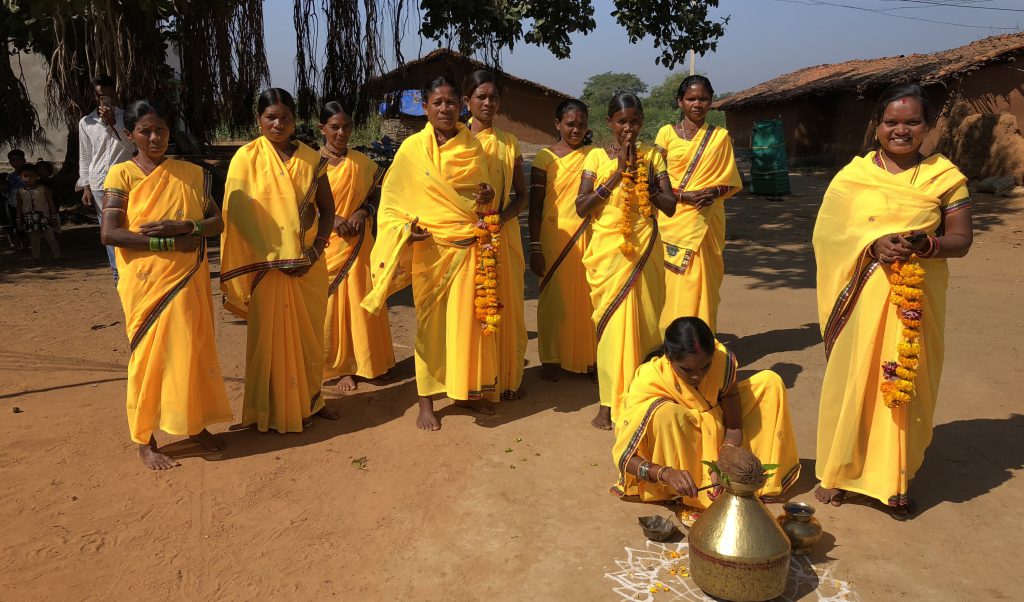Why should we care about sustainable fashion? Take it from someone who knows best what sustainable sourcing can do. Phulme is a cotton farmer working for a Fairtrade certified co-operative.
Phulme lives in the remote Bolangir district in the Odisha state of eastern India where her community, the Pratima Organic Growers Group, farm sustainable cotton. Her co-operative is made up of over two thousand individual members spread across 72 villages. Until now, they received little contact from the outside world and lived in relative poverty.
The Pratima co-op have been Fairtrade certified since 2010. They are a democratic society and every three years choose a chairperson to speak on behalf of, and lead, the group. That person is Phulme Majhi, and she talks to us about being a woman leading the Pratima Group, and explains some of the challenges, both environmental and social, that they face.
Sustainable fashion empowers women

“I was elected as the chairperson of our co-op. There was a voting process between a male farmer and myself, and I won! I was very apprehensive in the beginning, being a women, I wondered how I would manage to deal with the men on the board. I was very afraid and scared. But I am not afraid anymore.
“Now we can walk shoulder to shoulder with men. We [women] have access to finance and the confidence to handle our own finances, whereas in the past we relied on men. We get training and we can meet visitors – this gives us more confidence in ourselves. We are able to fulfil our needs ourselves, and not be dependent on men.”
Fairtrade provides co-ops like Pratima with training and support to give farmers the opportunity to improve their lives. Phulme was also involved in a women’s group with other women in her village.
“We were educated about the benefits of a women’s group and asked to set-up our own. I spoke to the other women and explained the benefit we would get from this group. This group taught us to realise our own strength, and that we can go outside of our homes and village, that we can go to the bank and attend meetings.
“Before I was restricted to my house and I did not do anything. I used to do domestic work like cooking and looking after the children, and helping at the farm – that was all.”
Fairtrade helps farmers and workers learn about women’s empowerment, making sure people have basic human rights like education and equal rights. With money from their Fairtrade Premium, Pratima also gives cash scholarships to 600-700 school students each year. Phulme speaks enthusiastically about how the women’s group she is part of gave her the confidence to become the chairperson for the whole society.
Sustainable fashion supports farmers
In Odisha, cotton farmers face drastic environmental challenges. It is a hilly area, where only cotton can grow on the steep slopes and poor soils. They grow a little rice and some pulses as staple crops in flatter places, but rely on cotton for their basic needs. Sometimes there is no opportunity for any crop during the second part of the year and people may have to leave their homes and look elsewhere for work.
“There used to be no rainfall. We have a problem with rainfall. We have received facilities to help this – Fairtrade has helped to build a water storage unit to preserve rainwater.
“We have also learnt about agricultural practices like composting, which we were not doing ten years ago. We now know about better farming practices, we used to till the land manually and now we have access to tractors. In summers we still face a lot of problems with lack of water. During the rainy season it is OK, but afterwards we are facing a lot of problems.”

Learning and growing
Cotton harvesting takes place over two months, from December to January. Each farm sees two to three pickings and the produce is stored temporarily until the final picking is complete.
The co-op representatives take samples from each farmer for quality checking and then farmers take the cotton to the resource centre, where the collected cotton is taken to the gin for processing. The gin is a machine that separates cotton fibers from their seeds. The resource centre has a weighing machine where the farmers weigh the cotton themselves and then it is again weighed at the gin in front of a farmer representative. Payment is made directly to the farmer’s bank account – something Phulme is proud to be able to manage for herself.
During processing, meticulous care is taken to ensure the integrity and traceability of the Fairtrade cotton.
“Fairtrade gives us training in how to tackle our problems. We have also had the opportunity to meet with other groups and businesses. Through this exposure, and being associated with Fairtrade, we have the confidence to speak to people and other officials. Previously we would just depend on what we were told, but now we can decide for ourselves.
“We are a very small village, no-one used to come to meet us, and now lots of people come to see us. We all really like it when someone comes to visit!”
Support cotton farmers like Phulme by buying clothes and homeware made with Fairtrade cotton.
